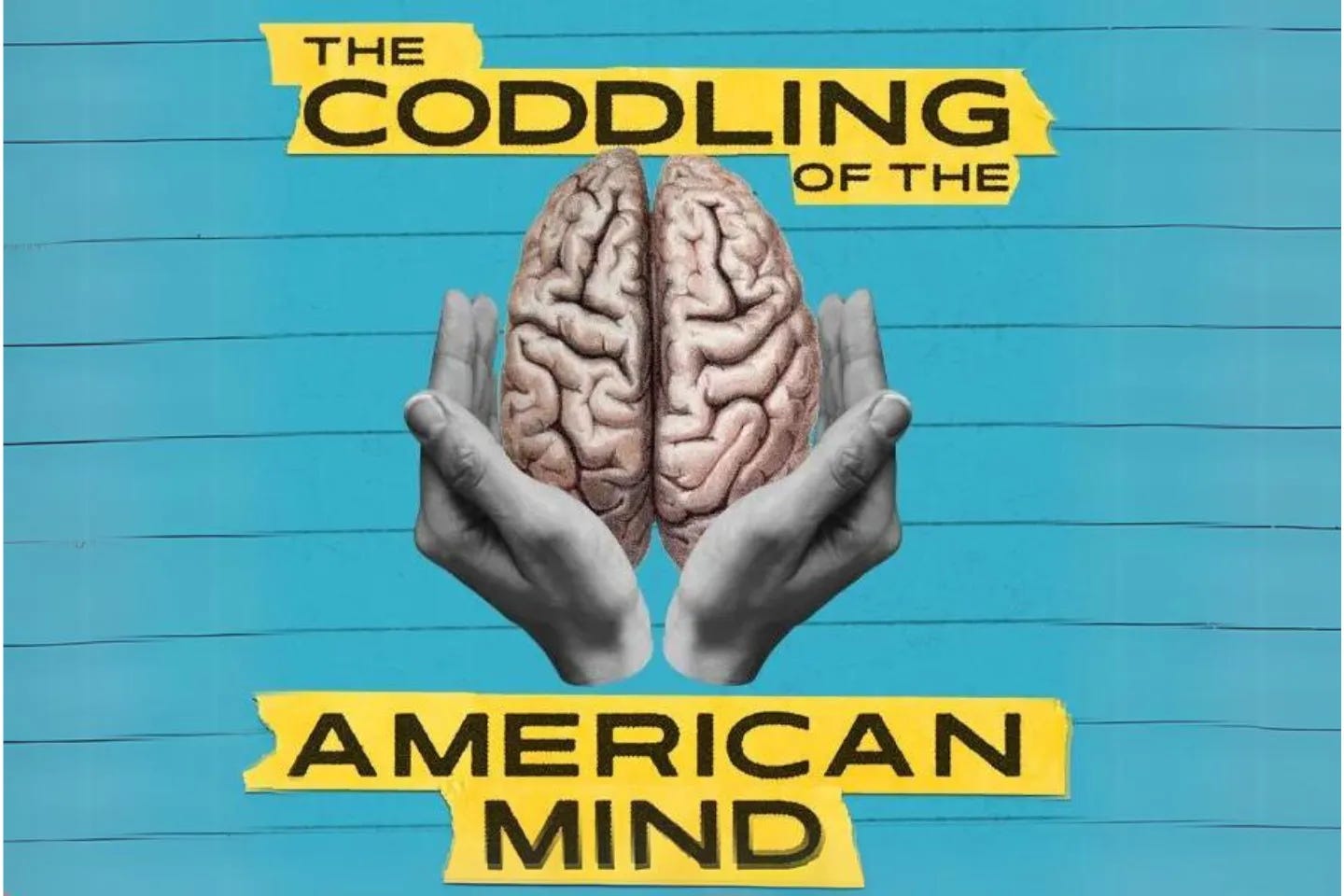Heterodox at USC Newsletter #14
We're officially official! Plus, two upcoming events, registration date for the Censorship in the Sciences conference, and several eye-opening reports.
We’re excited to announce that we’re officially a Campus Community of the Heterodox Academy! Read the full announcement from Heterodox Academy here» This provides us with more resources and support for advancing viewpoint diversity, constructive disagreement, and open inquiry at USC.
If you’re USC faculty member, staff member, or a student that would like to be more involved with our group, please reach out to us at heterodoxatusc@gmail.com. We also encourage any of our readers who are not currently Heterodox Academy members to join HxA (it’s completely free).
Upcoming HxA at USC Events
Are you a Blocked and Reported fan? You’ll be happy to know that one of their most recent guests, Musa al-Gharbi, will at the USC campus (live and in person!) soon to discuss his new book. See details:
Tuesday, October 15 | 6pm to 7:15pm | Dean’s Conference Room, Ralph and Goldy Lewis Hall (RGL) 308
Drawing from themes of his new book, We Have Never Been Woke: The Cultural Contradictions of a New Elite, Stony Brook University sociologist Dr. Musa al-Gharbi explores how most scholars and journalists on the "blue" line of political charts lead us to focus inordinately on the "red" line, and often to discuss the people on the "red" line in prejudicial ways — frequently in defiance of our own empirical evidence. USC Price Professor Dr. Michael Thom will give opening remarks. This talk is for USC students, staff, and faculty only.
*New Event!* Screening of The Coddling of the American Mind
Thursday, October 17 | 8:15pm to 10pm | Taper Hall, Room 301 (Auditorium)
Join us for a screening of The Coddling of the American Mind, a feature documentary based on the bestselling book of the same name by Greg Lukianoff and Jonathan Haidt. The thought-provoking documentary delves into the challenges facing young adults today shown through the eyes of students from different universities. RSVP here»
Save the date: Registration for the Censorship in the Sciences conference opens Oct. 8th
We’re hosting a conference on the USC campus from January 10 to 12th to discuss a series of contentious issues regarding censorship in the sciences. This includes:
When, if ever, does rejection of manuscripts for publication or grants for funding constitute censorship?
How much of a role, if any, should ethical/moral issues play in deciding which scientific ideas to disseminate?
What are the likely costs and benefits of institutionalized censorship, how do we decide, and who decides, when the benefits outweigh the costs?
We will send an announcement about registration on October 8th to this mailing list. Please forward this email to anyone who may be interested in attending, so they can sign-up for the announcements as well.
News from USC
The Daily Trojan covered our recent catastrophic drop in FIRE rankings, which we discussed in our last newsletter.
USC wins $25 million grant to explore Alzheimer’s ‘exposome’
USC celebrates opening of Dr. Allen and Charlotte Ginsburg Human-Centered Computation Hall
News Beyond USC
Against Academic Support for Censorship
A public letter, signed by a number of prominent academics, has recently voiced support for Brazil’s “digital sovereignty” in its attacks on Elon Musk and his platform, X. A new open letter refutes this stance, and asserts that academics should not be supporting a state’s attempts to censor discourse:
However, instead of siding with X, the law, and Brazilians’ freedom of expression, the academics’ letter condemns Elon Musk for providing the only digital platform in Brazil that refused to censor speech deemed undesirable by some public officials. It seems the signatories believe that governments should be able to decide what their citizens can and cannot hear, and use all their might to silence criticism — essentially endorsing authoritarianism.
If you’d like to add your name to this letter, please email againstcensorship2024@proton.me
The Universal Problem of Campus Expression
Much of the media discourse around censorious college campuses is focused on prestigious, urban and coastal institutions. This has often allowed people to hand wave away the problem with “Eh, all that culture war stuff is just on a tiny minority of crazy liberal arts colleges.”
A new report from the Heterodox Academy has found that these problems are actually universal, affecting all types of academic institutions around the country.
Only 3% of Yale’s Faculty Are Republicans
A new report reveals that, out of 1,511 faculty in undergraduate degree granting programs and the law school at Yale, only about 3% could be identified as Republican. Some 20% were identified as independent (this category included things like third party or unknown affiliation due to the faculty member’s registration connected to a state other than Connecticut). The rest were registered Democrats.
These numbers don’t accurately the American populace (30% Republican, 31% Democrat and 39% independent according to Gallup.) It also doesn’t reflect Connecticut’s voters, who are 20% registered Republicans. This doesn’t even reflect the voting habits of Americans with postgraduate degrees, 33% of whom identify as Republican. And, we’d guess, it’s highly unlikely that digging into the “independent” category would reveal a large number of conservative third party affiliations that balance things out.
Again, contrary to public perception that an ideological takeover is just limited to fringe humanities departments, this report finds that departments like computer and electrical engineering and economics have zero Republicans, although they do have some independents (whatever that means). The sociology department is comprised of 100% Democrats. Philosophy has only a single non-Democrat…an independent (whatever that might mean).
As even the New York Times admits (paywall):
In his influential 1994 paper “Political Psychology or Politicized Psychology: Is the Road to Scientific Hell Paved With Good Moral Intentions?,” Philip E. Tetlock argued that the field was in danger of simply reproducing (or being seen as reproducing) favored political talking points. Too many researchers, he argued, were blind to the ways their biases were baked into their methodologies and premises, and the ways dissent was discouraged.
We’d be interested in conducting a similar evaluation of USC faculty. Please get in touch with us at heterodoxatusc@substack.com if you have ideas about how to do so.
If you have suggestions for things you’d like us to cover, feedback on our newsletter, or want to get more involved with Heterodox at USC please contact us at heterodox.usc@gmail.com. We’d also love if you forwarded this email to Heterodox-minded colleagues and alumni.







